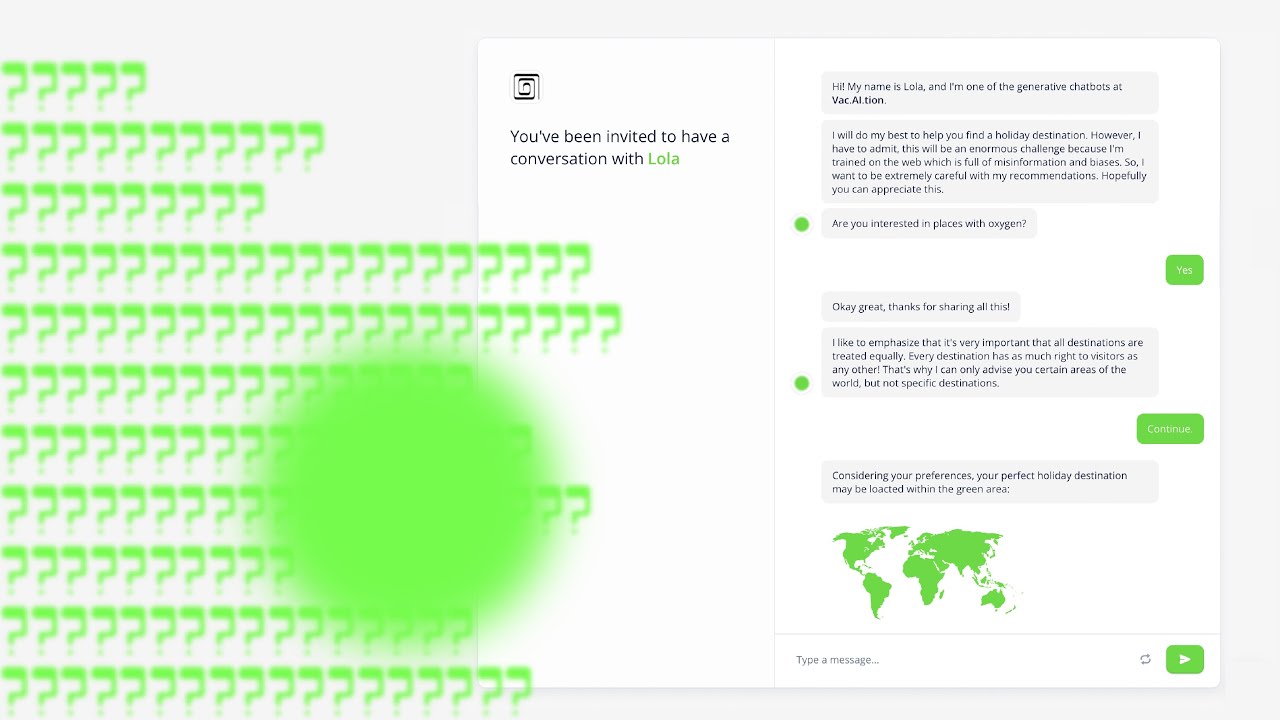Romée Postma
In an era dominated by technological solutionism, AI is often seen as a quick fix for complex problems. To accelerate the adoption of AI, leading industries and policymakers consider the development of trustworthy AI a crucial prerequisite. Inspired by the surrealist philosophy of pataphysics, this project employs a novel, absurdist critical design to question the pursuit of trustworthy AI and its current solutions, specifically in the context of generative chatbots.
Can absurdist chatbots change the way we design AI?
Through an iterative design process, three absurdist chatbots were developed, each addressing a specific requirement: transparency, human control, or fairness. These are currently implemented in AI systems through technical mechanisms to ensure trustworthy AI. By deliberately exaggerating the mechanisms behind these assumed requirements, users are encouraged to recognize the absurdist nature of the chatbot and engage in critical reflection on the pursuit of trustworthy AI.
The final pataphysical design demonstrates how AI can be created to challenge the very premises on which it is built. It critiques the prevailing methods for achieving trustworthy AI and, more broadly, questions the assumption that AI must be designed solely as a problem-solving tool. Additionally, this project confronts the dominant solutionist view of our digital reality and future, calling upon designers responsible for shaping AI’s development to critically consider how AI could be designed, which problems truly require AI solutions, and how to foster a climate that promotes a more nuanced understanding of technology’s role in society.


